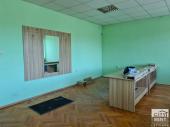|
| More about nestinari and fire dancing - a first-person story |
|
|
 Fire-dancing is an ancient custom performed by a closed community of “nestinari” and it has been shrouded in mystery and mysticism for centuries. In 2009, the ritual was included in the UNESCO List of Intangible Cultural Heritage and in the National Representative List of Intangible Cultural Heritage "Living Human Treasures - Bulgaria". Many scholars associate it with the ancient Thracians, although there is no exact information about the origin or the mysteries of the ritual.The information we find today is more about the external, visible elements of the holiday. Its true nature and the sacraments are transmitted by the older fire dancers to people who have felt a real connection with the ritual and the community. Fire-dancing is preserved in several villages in the Strandzha region (southwestern Bulgaria) and northern Greece, among the descendants of settlers from Eastern Thrace. In Bulgaria nestinari most often perform their dance on glowing embers as the culmination of the holiday in honor of Saints Constantine and Helena on June 3, according to old-style calendar. At the beginning of the twentieth century, fire dancing was denied by both the church and the secular authorities and during socialism it was completely banned. In Bulgaria it gradually revived after 1989. In Greece the custom has been practiced without interruption, but some elements have changed.
Fire-dancing is an ancient custom performed by a closed community of “nestinari” and it has been shrouded in mystery and mysticism for centuries. In 2009, the ritual was included in the UNESCO List of Intangible Cultural Heritage and in the National Representative List of Intangible Cultural Heritage "Living Human Treasures - Bulgaria". Many scholars associate it with the ancient Thracians, although there is no exact information about the origin or the mysteries of the ritual.The information we find today is more about the external, visible elements of the holiday. Its true nature and the sacraments are transmitted by the older fire dancers to people who have felt a real connection with the ritual and the community. Fire-dancing is preserved in several villages in the Strandzha region (southwestern Bulgaria) and northern Greece, among the descendants of settlers from Eastern Thrace. In Bulgaria nestinari most often perform their dance on glowing embers as the culmination of the holiday in honor of Saints Constantine and Helena on June 3, according to old-style calendar. At the beginning of the twentieth century, fire dancing was denied by both the church and the secular authorities and during socialism it was completely banned. In Bulgaria it gradually revived after 1989. In Greece the custom has been practiced without interruption, but some elements have changed.
"I know that fire-dancing is inherited, but that is not enough. One needs to learn a lot and know the meaning of the ritual actions," says Georgi Iliev, heir of two families of nestinari, who moved to the village of Kosti and Brodilovo in 1913. Folk singer, chairman of the Thracian Club "Saints Constantine and Helena” in the town of Tsarevo, head of the Hasekia Folk Dance Club, he is among the few young people who practice fire-dancing in its ritual integrity.
"Many people associate nestinari only with dancing on fire, which is not correct,” Georgi Iliev says. “There are other elements that have been neglected, but are an essential part of the ritual. In many old sources we read that the cradle of the practice is the village of Kosti. There the ritual was widely spread and accurately performed. I myself felt connection with fire-dancing 15 years ago, when I lost both my grandfathers in a very short time. Then I contacted the organizers of the celebration in Kosti and went there. I don't even remember exactly what made me go into the big fire, I just did it. I am grateful to the people who revealed parts of their secrets to me. I learned many things from my friends in northern Greece, descendants of emigrants from Kosti and Brodilovo. At first it was a little difficult for them to accept me, but they are the ones who decide what and to whom to reveal. I have learned a number of things from my relatives. My great-grandmother was a fire-dancer and practiced the custom, but her daughter and daughter-in-law, did not have the opportunity to practice because of the prohibitions.”
Georgi also remembers his first visit to the nestinari in Greece:
"I was speechless and my first thought was: 'God, why have we lost this in Bulgaria!' In recent years, I have invested a lot of effort and resources to restore at least the basic elements. Everyone has a mission. My mission is to collect all the scattered and forgotten items used in the ritual, so that it can return to its homeland.”
We also learn from Georgi that on June 3 the holiday in the village of Bulgari will be held in a very small circle and only people from the community will be present. Due to current restrictions, no gathering of spectators would be allowed, as this would lead to risks.
"Sometimes 5,000 or 6,000 people gather in this small village and there is no room to breathe. This also affects the ritual. That's why the locals have now decided to do it in a limited circle. One must be highly moral, strive for spiritual development, and have the desire to understand the ritual and they should not think that by entering the fire they know everything. One of the qualities that a fire-dancer must possess is purity of spirit.” |
|
|
Source:
bnr.bg
|
| Wednesday, Jul 22, 2020 |
|
|
|
|
| » RENTALS |

|
|
|
| Office Space |
€ 395 |
|
| Location: |
Veliko Tarnovo |
|
|

|